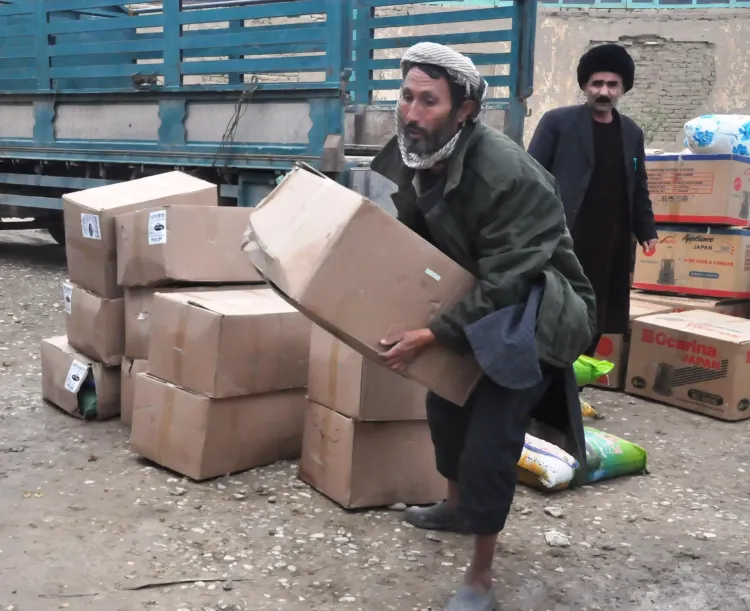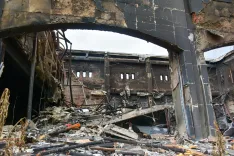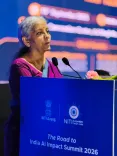Will earthquake-affected families in Afghanistan survive winter without international aid?

Synopsis
Key Takeaways
- Urgent international aid is crucial for earthquake victims in Afghanistan.
- The UN has requested $139 million for essential support.
- Women play a vital role in humanitarian efforts.
- The earthquake's impact has been devastating, with thousands affected.
- Aid agencies are working to provide immediate relief and long-term recovery solutions.
Kabul, Sep 15 (NationPress) The United Nations Assistance Mission in Afghanistan (UNAMA) and United Nations Development Programme (UNDP) have issued a grave warning that thousands of families affected by recent earthquakes in eastern Afghanistan may not endure the upcoming winter without prompt international assistance, as reported by local media on Monday.
The UN has appealed for 139 million dollars in urgent aid to ensure access to essential shelter, food, and healthcare. Roza Otunbayeva, the head of the United Nations Assistance Mission in Afghanistan, urged the global community to act swiftly, highlighting the necessity for this funding to address pressing international needs, according to Khaama Press.
Otunbayeva emphasized the critical role of women in delivering humanitarian assistance, noting that restrictions on female aid workers have severely hindered efforts to assist victims. She remarked that the participation of women is vital for reaching families, especially those with vulnerable women and children.
Local and aid officials reported that the earthquake, registering a magnitude of 6.0, resulted in hundreds of fatalities, thousands of injuries, and tens of thousands left without homes across Nangarhar, Kunar, and Laghman provinces. The UNDP highlighted the need for community-based recovery, proposing cash-for-work programs to allow survivors to earn income while engaging in debris removal, housing reconstruction, and infrastructure restoration.
The UN noted that earthquakes disproportionately affect impoverished populations living in fragile structures, lacking the resources for recovery. The humanitarian agencies pointed out that many recent returnees from Pakistan and Iran are among the victims, stressing that aid is crucial for women, returnees, and marginalized groups.
Recently, the United Nations Office for the Coordination of Humanitarian Affairs (OCHA) reported that at least 2,164 individuals, including numerous women and children, lost their lives in the recent earthquake that struck the eastern provinces, as documented by Khaama Press.
According to an OCHA update on September 11, the casualties included 516 women and 476 men, along with 509 girls and 663 boys who perished in the disaster, highlighting its devastating impact on families. The OCHA noted that humanitarian agencies have provided food assistance to over 60,800 earthquake-affected individuals, yet many communities continue to face overwhelming needs.
While aid agencies have been supplying shelter support to families affected by the earthquake, including tents or temporary housing, they have indicated that resources are limited and winter is fast approaching. This disaster underscores Afghanistan's acute vulnerability to natural disasters and the urgent necessity for sustained humanitarian funding.









